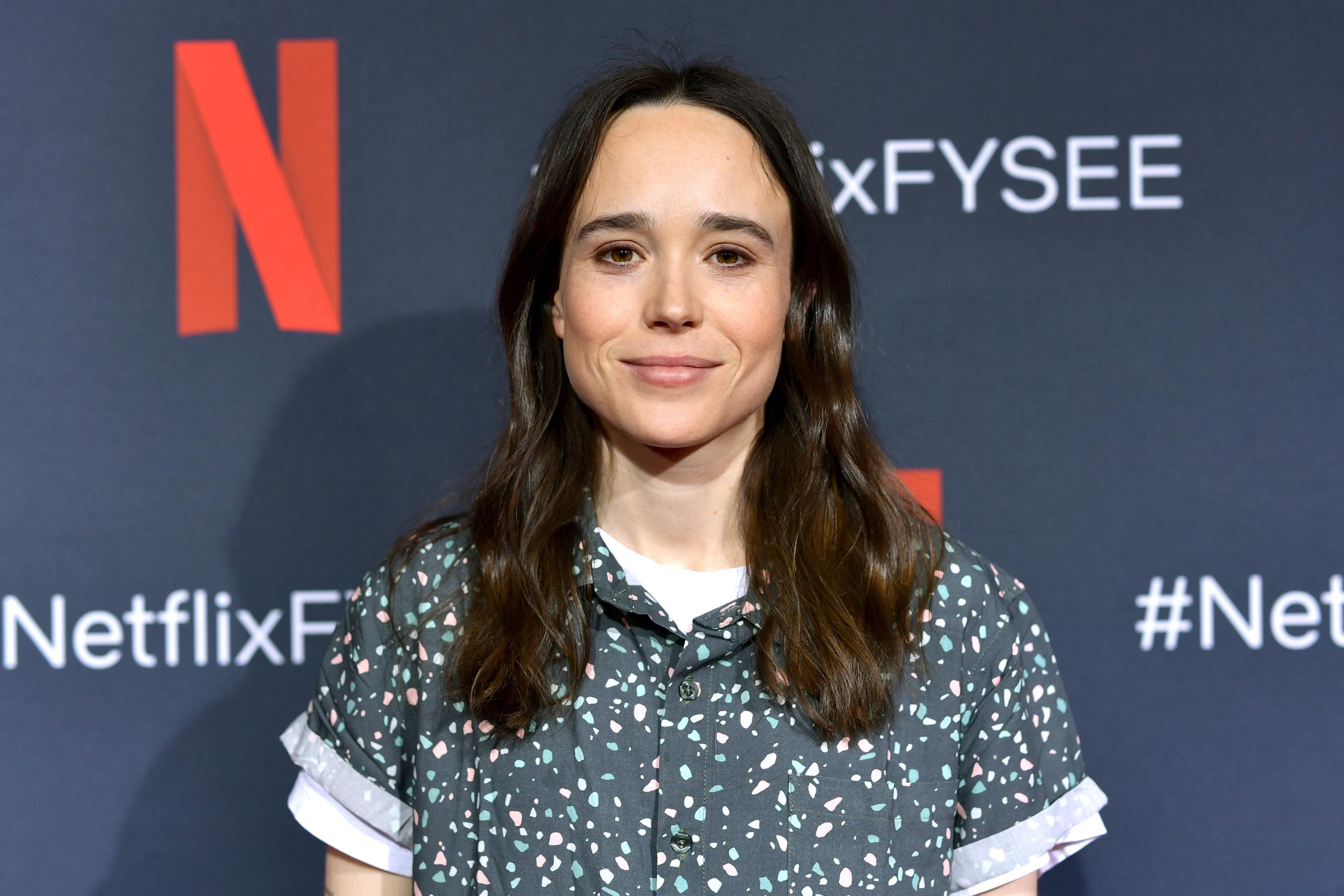This post is part of Outward, Slate’s home for coverage of LGBTQ life, thought, and culture. Read more here.
Most people are overjoyed for Elliot Page, who came out as trans on social media Tuesday and stated a preference for the pronouns he or they. A tiny minority of lesbian women, however, have a bone to pick: Sure, Elliot might be happier living a more authentic life, but what about their own feelings? Some who were deeply touched by Page’s initial coming-out-as-gay speech in 2014 feel that their emotional response has been somehow diminished by the new information. Others suggested that this was somehow connected to compulsory heterosexuality, apparently believing that social pressure to be straight outweighs pressure not to be trans. The fear of cruel jokes, hatred, and violence Page expressed in his statement belies this, and any trans person can tell you it is nonsense. All of this comes from a vague, yet still pernicious, idea that transmasculinity is some kind of existential threat to cis lesbianism.
A few quick points: First, Elliot Page’s gender identity isn’t about anyone other than Page themself. Second, they never said they’re no longer gay, and nothing that happens in 2020 can go back and ruin someone’s emotions from 2014. But perhaps the most irksome thing of all is that transmasculine people’s relationship to the lesbian community has always been a strong and close one, for all its complexity. Transmasculine people have been part of the lesbian community for as long as there’s been such a thing. Iconic transmasculine lesbian writer Leslie Feinberg is remembered primarily for hir writing about this. There’s no way of knowing if Page will continue to consider themself a lesbian, but if so, they will be joining the many other transmasculine lesbians who, like Page, use he/they pronouns.
After I transitioned as a binary trans man, I did come to feel that lesbian was no longer a term I could use to describe myself—and that’s OK too. Though I stopped describing myself that way, my two decades of loving lesbians is a history I deeply cherish. The lesbian community remains among my greatest supports, and I do whatever I can to support and show my respect for them in turn. Transitioning and becoming a man was no more about rejecting lesbians, for me, than becoming an adult was about rejecting my mom and dad. Those who shaped us can never be erased, and though my relationship with the lesbian community has changed, it is still a close one characterized by gratitude, mutual respect, and love.
That’s why it’s important for people to understand that the vast majority of lesbians and queer women reject this mentality of choosing sides, of considering transgender identities a threat or counting each transitioning butch a “loss” for the lesbian team. A prime example of the lack of support for trans-exclusion is the demise of the formerly great website AfterEllen, which is either dead or dying after pivoting to an anti-trans, exclusionary editorial stance. The belief this pivot reflected—that a silent majority of lesbians would flock to a site that unapologetically defined lesbians as cis women loving cis women only—has been proven resoundingly false. Lesbians in the wild welcome their trans and nonbinary siblings. That’s why successful lesbian dating apps such as Her take an inclusive approach, allowing everyone from bisexual cis women to transgender men to make a profile. The lesbian community has been offered both inclusivity and exclusivity, and they’ve consistently chosen the inclusive side.
This generous, empathetic streak in lesbianism is, to my mind, one of the things that sets it apart from other communities, even other communities that fall under the LGBTQ umbrella. The energy of reaching out and drawing everyone in is rooted in the very particular experience that cis lesbians, trans lesbians, and transmasculine people share of experiencing, and resisting, the pervasive social pressure on women to conform to a narrow, straight ideal. This pressure—whether you call it misogyny, patriarchy, bias, the weight of expectations, or what have you—has been felt by each of us, and each of our lives has been warped by it in some way. Something in that process seems to prompt us to draw close to one another, to recognize what we still share even if we change in different directions over time. (The few holdouts, like the AfterEllen website, seem almost like they’re trying to talk themselves out of this tendency by making trans-exclusion a monomania, discussing little else.)
Elliot Page, however their personal relationship with the word lesbian evolves, will never stop being the actor who was nominated for an Academy Award as Juno, a pregnant teen girl. They will never stop being the actor who nervously told the Human Rights Campaign’s Time to THRIVE conference, “I am here today because I am gay.” They’ll never stop being the actor who said, in an interview with Balance, “We’re a married lesbian couple, and in a world that doesn’t have enough LGBTQ+ representation, you want to be visible.” If they’re like other transmasculine people, this history will at once be a source of strength and, at times, a source of pain and doubt. Though they’re moving on, it doesn’t have to mean anything or anyone is being left behind. That’s why, apart from a few outspoken outliers, I have no doubt that the lesbian community will remain among Elliot’s greatest supporters and fans. Transmasculine people can rely on cis lesbians to have our backs. The lesbian community is just that good.
